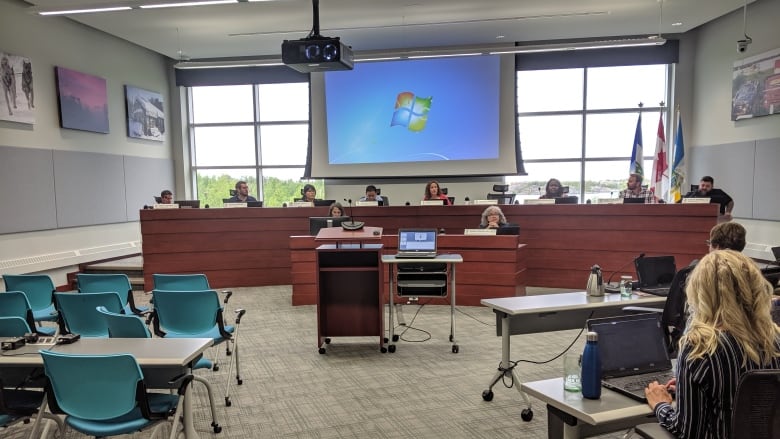City council in Yellowknife, Northern Canada rejects looking into restricting liquor sales and store hours

Yellowknife city councillors rejected an idea from the mayor to start a dialogue with the Northwest Territories government to potentially change liquor stores hours, and to restrict how much liquor residents can buy.
“I think that this is absolutely asinine for a capital city to be even thinking about stuff like this,” Coun. Steve Payne said at Monday’s thinly-attended meeting of the Governance and Priorities Committee.
“Are we gonna restrict McDonald’s [restaurants] because it makes people overweight and unhealthy?”
Mayor Rebecca Alty said she wanted to have this discussion because the idea has been brought up before in discussions about moving Yellowknife’s downtown liquor store.

A short distance away from the store is a joint sobering centre and day shelter. The latter has made headlines over the past months because of neighbours’ concerns about violence there.
Alty used the example of a Fort Simpson liquor store, which is only open between 3 p.m. and 8 p.m. There are also restrictions on how much alcohol customers can buy per day.
She referenced a recent study, produced in part by the University of Victoria’s Canadian Institute for Substance Use Research (CISUR), that reviewed policies regarding alcohol in Canada, including the Northwest Territories.
The study, funded by Health Canada, recommends stopping alcohol sales before 11 a.m. and after 8 p.m. in stores, and after 1 a.m. in restaurants and bars.
“As availability goes up, the consumption by the population increases, which usually translates to more people drinking larger amounts per day,” Tim Stockwell, director of CISUR, said in a phone interview from Victoria.
The reduction in hours can help reduce how much people drink which, in turn, would help reduce the number of violent incidents and associated long-term health issues, he said.
Coun. Cynthia Mufandaedza noted that reducing the number of hours liquor stores are open in the city may make it difficult for some working people to find time to visit.
She also said restricting the amounts people can buy at a time could make things complicated.
“If people are feeding a serious addiction, there’s not a lot of constraints you could put in place that are gonna stop them from finding the substance somehow,” said Coun. Julian Morse, adding that he “tentatively” supports Alty’s idea.
He also brought up a concern of potentially inconveniencing people, and the idea of separate stores (with different hours) for beer and wine, and hard liquor.
24 hour liquor sales?
Coun. Niels Konge said within about two hours of the downtown liquor store opening, there are already several people in the area highly intoxicated.
“I think if we wanted to reduce that … we would actually open the liquor store 24 hours a day because then there would be access to the alcohol 24 hours a day, and the people who have addiction issues would be able to go and get it whenever, instead of 10 of them all showing up at the same time,” he said.

Konge suggested allowing liquor stores to open on Sundays, which would, he claimed, reduce bootlegging. He also called the Liquor Act “quite archaic,” and said he would enjoy being able to drink wine in a park.
Coun. Stacie Smith echoed a similar idea.
“I think restricting is just ridiculous and … 24 hours I think would be ideal. You have less want for the item if it’s something you can get all the time,” she said, adding that addictions and mental health should be the focus, not liquor.
Stockwell said allowing round-the-clock liquor sales could help curb alcohol-related violence spikes, namely on Friday and Saturday nights when bars close at the same time and people leave at the same time, then converge in public.
However, he said research has shown that that can result in an overall net gain of violent incidents — they’re just more spread out.
Related stories from around the North:
Canada: How a community in Northern Canada is adapting to the end of alcohol restrictions, CBC News
Finland: Finland’s six-year slump in alcohol sales ends, Yle News
United States: First liquor store in more than 40 years opens in Bethel, Alaska, Alaska Dispatch News



